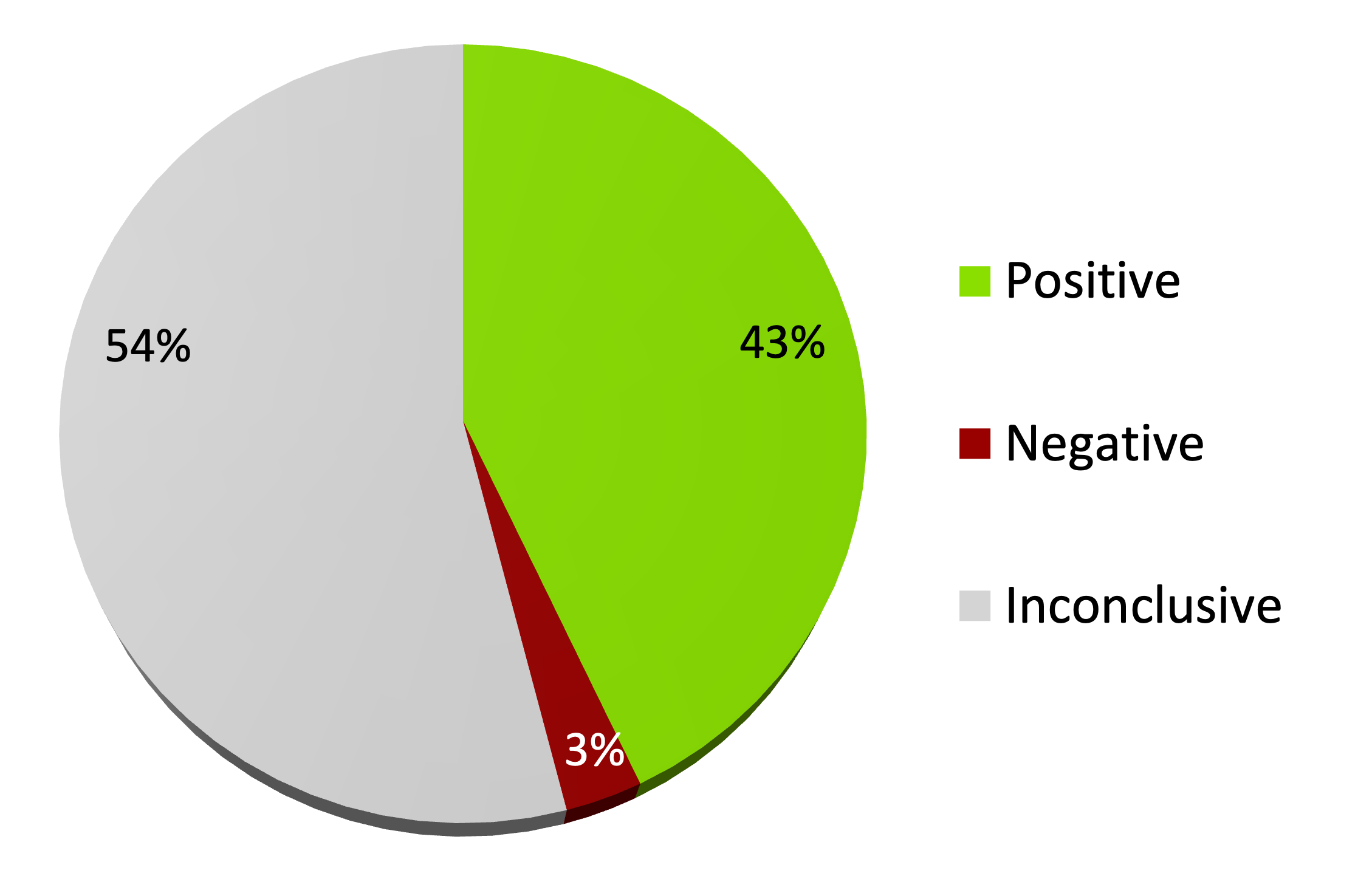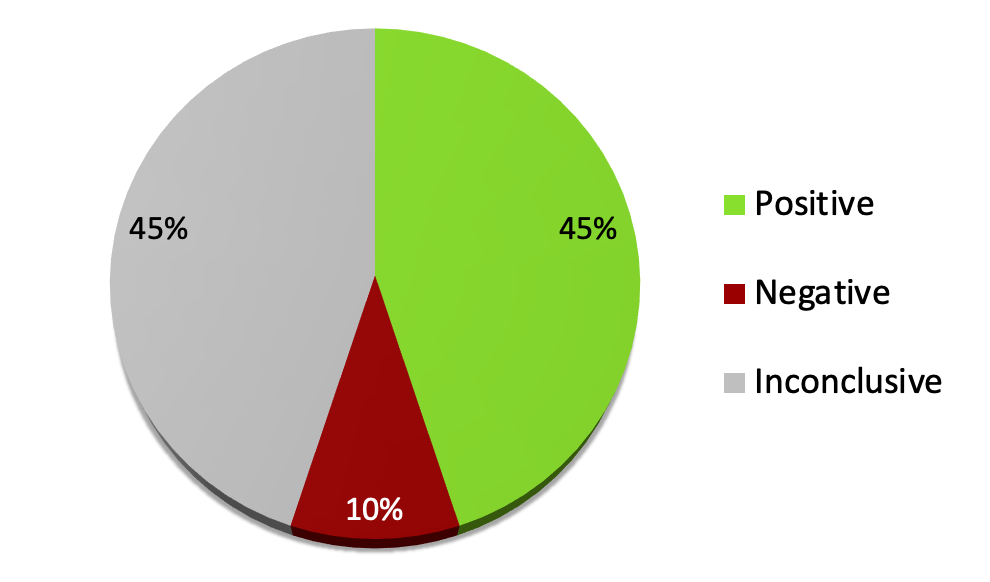The scientific evidence for homeopathy is based on the same types of clinical trials as those used to test conventional medical treatments.
By the end of 2022, 271 randomised controlled trials of homeopathic treatment for 144 medical conditions have been published in peer-reviewed journals with sufficient information provided to analyse the results.
Of these, 157 were double-blind, randomised, placebo-controlled trials, covering 95 different medical conditions1:
- 43% were positive (67 trials) – finding that homeopathy was effective
- 3% were negative (5 trials) – finding that homeopathy was ineffective
- 54% were inconclusive (85 trials)
157 DB-RCTs of homeopathy (end of 2022)
Chart A
Full list of double-blind randomised placebo controlled trials.
Studies excluded: Non-peer-reviewed journals and other non-academic sources; non-human studies; prophylaxis studies; cross-over design; single-blind trials.
How does this compare with the scientific evidence for conventional medicine?
1128 systematic reviews of RCTs of conventional medicine
Chart B
An analysis of 1128 systematic reviews of RCTs of conventional medicine had strikingly similar findings in terms of the proportion of positive clinical trials2:
- 45% were positive – the treatments were likely to be beneficial
- 10% were negative – the treatments were likely to be harmful
- 45% were inconclusive – the evidence did not support either benefit or harm.
Although the overall balance of evidence is broadly similar in homeopathy and conventional medicine, it is important to recognise a vast difference in the quantity of research carried out. Chart A shows analysis of 157 studies out of a total of 271 individual trials on homeopathy. By contrast, chart B shows analysis of 1128 out of over 4000 Cochrane systematic reviews on conventional medicine published by 2011, each analysing multiple individual trials.
This highlights the need for more research in homeopathy, particularly large-scale high quality repetitions of the most promising positive studies.
The difference in quantity is also not surprising when one considers that only a tiny fraction of available funding is allocated to research into ‘complementary and alternative medicine’ (CAM).
For example, an analysis in the UK found that only 0.0085% of the total medical research budget was spent on CAM.3 And in the US, <0.4% of the requested $51.1 billion annual medical budget is allocated to CAM for use by the National Center for Complementary and Integrative Health.4
Source : Homeopathy Research Institute (HRI)




